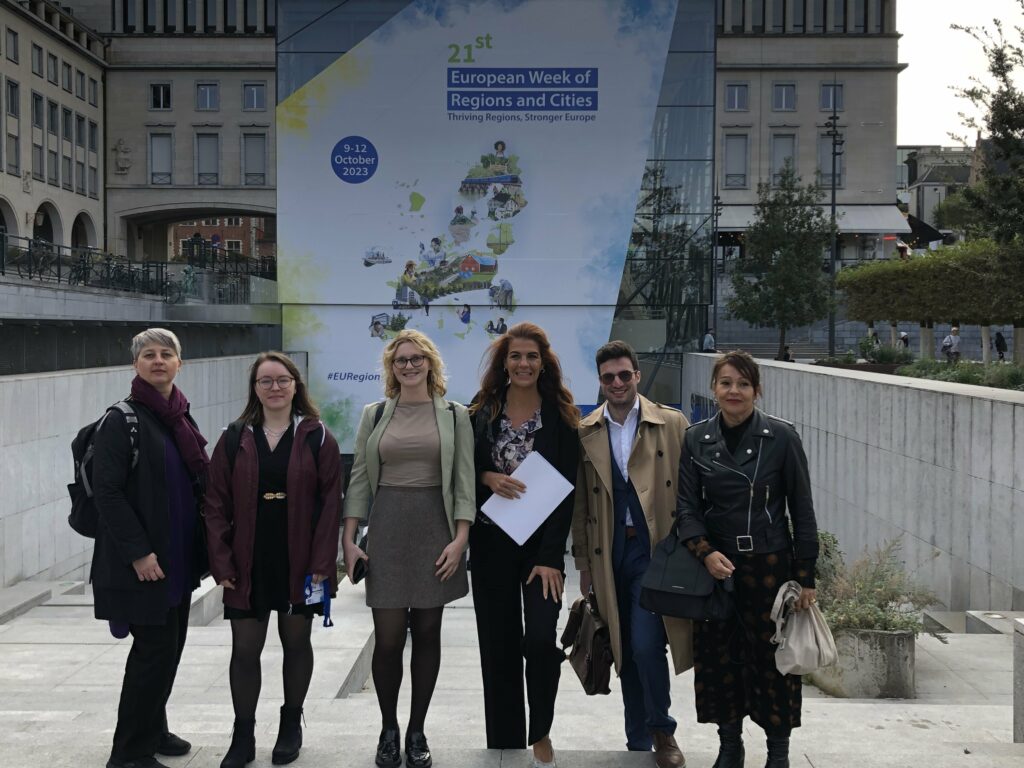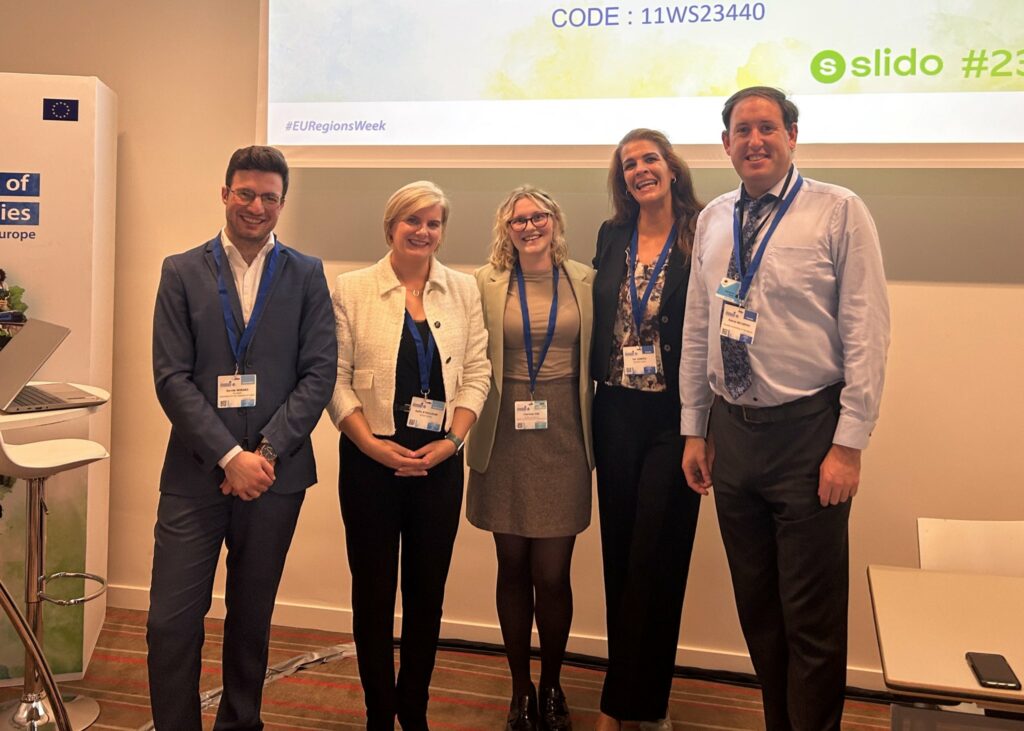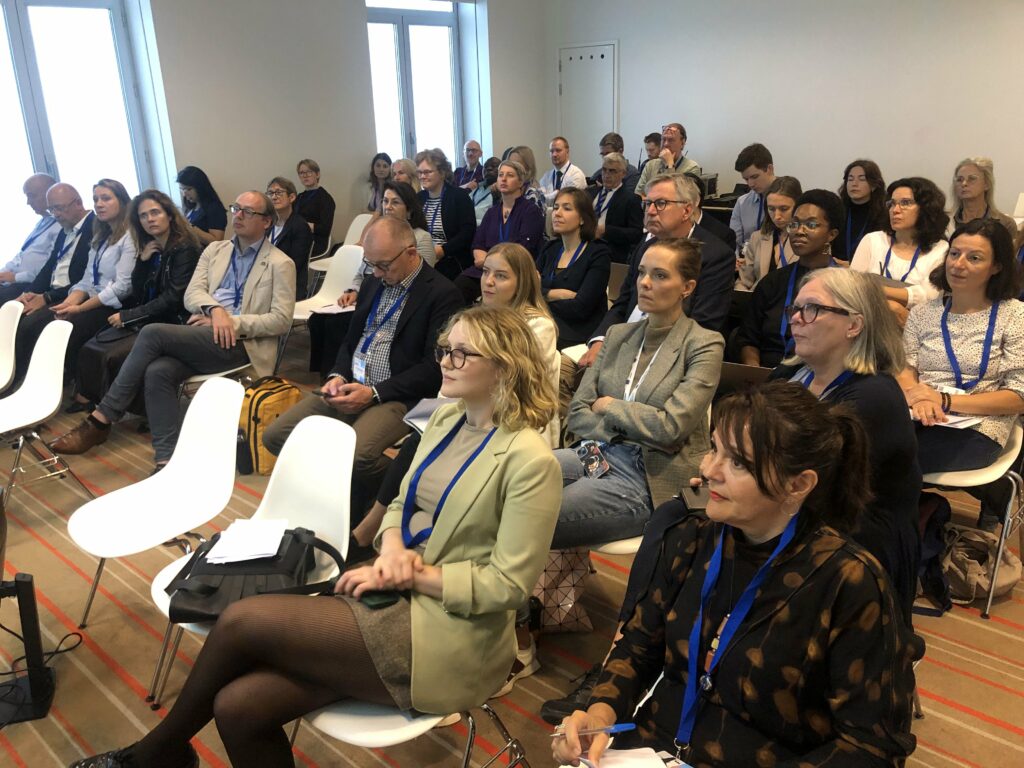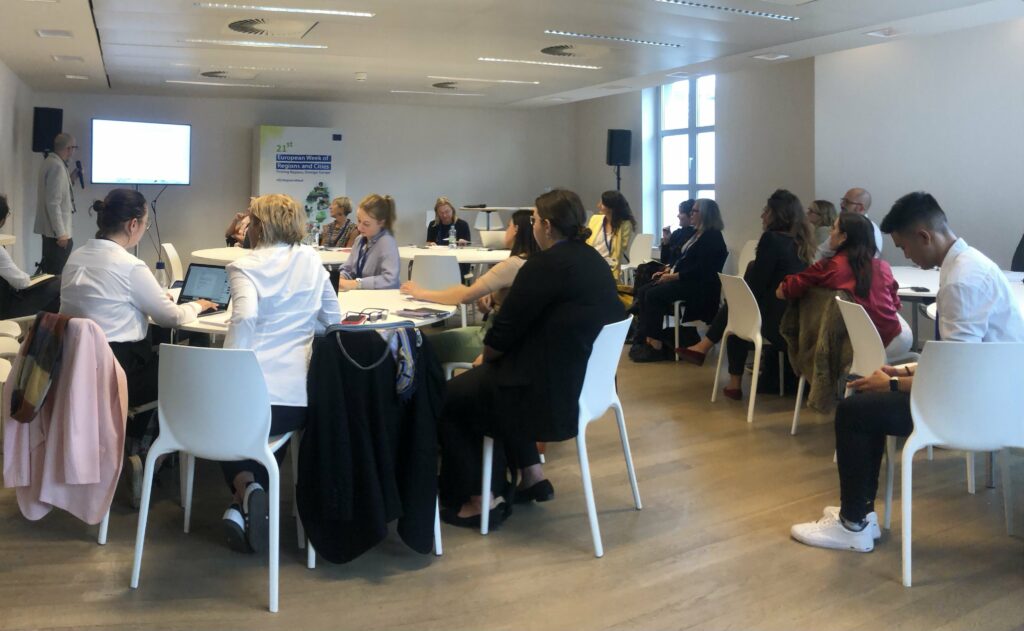European Regions at the heart of the green transition: EARLALL at the European Week of Regions and Cities 2023
16/10/2023

On 11 October 2023, EARLALL hosted two successful sessions during the annual European Week of Regions and Cities. The focus of the two sessions was on reskilling and upskilling for the green transition, involving over 60 participants. EARLALL’s members and partners participated strongly in the session, with representatives from Varaždin, Borås, Vestland, Catalonia and West Norway.
Lifelong Learning Policies for the Green Transition
The first workshop on ‘on Lifelong Learning for local sustainable growth: Policy and Practices for the Green Transition’ was organised by EARLALL, in collaboration with Skillnet Ireland and the European Association for the Education of Adults (EAEA). It proposed an exchange on initiatives that empower local & regional authorities, businesses, and communities to develop the skills needed in the green transition. The session was held in the context of the policy recommendations developed by the Erasmus+ KA3 RegALE project – Regional Capacity for Adult Learning and Education. The draft policy recommendations were introduced by Davide Muraro, Policy and Project Officer at EAEA. The discussion was moderated by Iva Janežić, Project Development Advisor, Varaždin County (an EARLALL member and partner in the RegALE project).
Kieran McCarthy, an independent member of the Committee of Regions and Lord Mayor of Cork (Ireland), presented Cork City and its bottom-up and top-down approaches to lifelong learning and sustainability. Moreover, Aoife O’Sullivan, Head of Network Development and Innovation at Skillnet Ireland, took the floor to explain the work of Skillnet Ireland in strong public-private partnerships for skill development for the green transition. These two examples served as best practices and application of the RegALE policy road map.
The session invited participants to apply their findings from the two best-practice examples to the policy roadmap proposed by RegALE, answering the questions “How would you improve the policy recommendations, with a green focus?”. Participants pointed to the importance of information sharing on opportunities in ALE, hinting at stronger guidance policies. Moreover, multiple participants indicated the need for solid, concrete best practices and examples of effective ALE to inspire ALE providers.


The green transition through a gendered lens
Moreover, EARLALL, EfVET and EAEA hosted a participatory lab on micro–credentials and their capacity to address gender-based issues going into the green transition. This session was organised in the context of the three organisation’s Gender Equality Task Force initiative. The Task Force aims to gather partners from the three organisations to launch a series of initiatives that encourage discussion on EU policies and strategies related to gender equality in lifelong learning.
Speakers included Sylvia Liuti, Gender Equality Expert and Italian National Board Coordinator, EfVET, who explained the challenges of the green transition from a gendered approach. Moreover, Liisa Metsola, Development Director, LIVE Foundation (Finland), spoke about the potential of micro-credentials and underrepresented groups. Isabel Ladrón Arroyo, Policy Officer, European Commission’s DG Employment, social affairs and inclusion, VET Unit, then presented the European approach to micro-credentials and emphasised their potential to reduce the gender gap in education, training and employment.
From within the EARLALL network, Òscar Palazón, Regional Ministry of Education – Government of Catalonia, shared the situation of green skills and gender disparity in the territory. He discussed the various skills training pathways Catalonia offers, in addition to the 2023-2024 reform which will introduce ‘micro-trainings’ into the VET system.
Angeliki Giannakopoulou, Project Officer at EAEA, split the participants into smaller groups to discuss the question ‘Whose role is it to implement Gender Equality in re-skilling and upskilling during the green transition?’. Key conclusions from this discussion indicate that there is a split in views for the answer, with some citing EU institutions, regional authorities, national authorities, families and CSOs as responsible.






